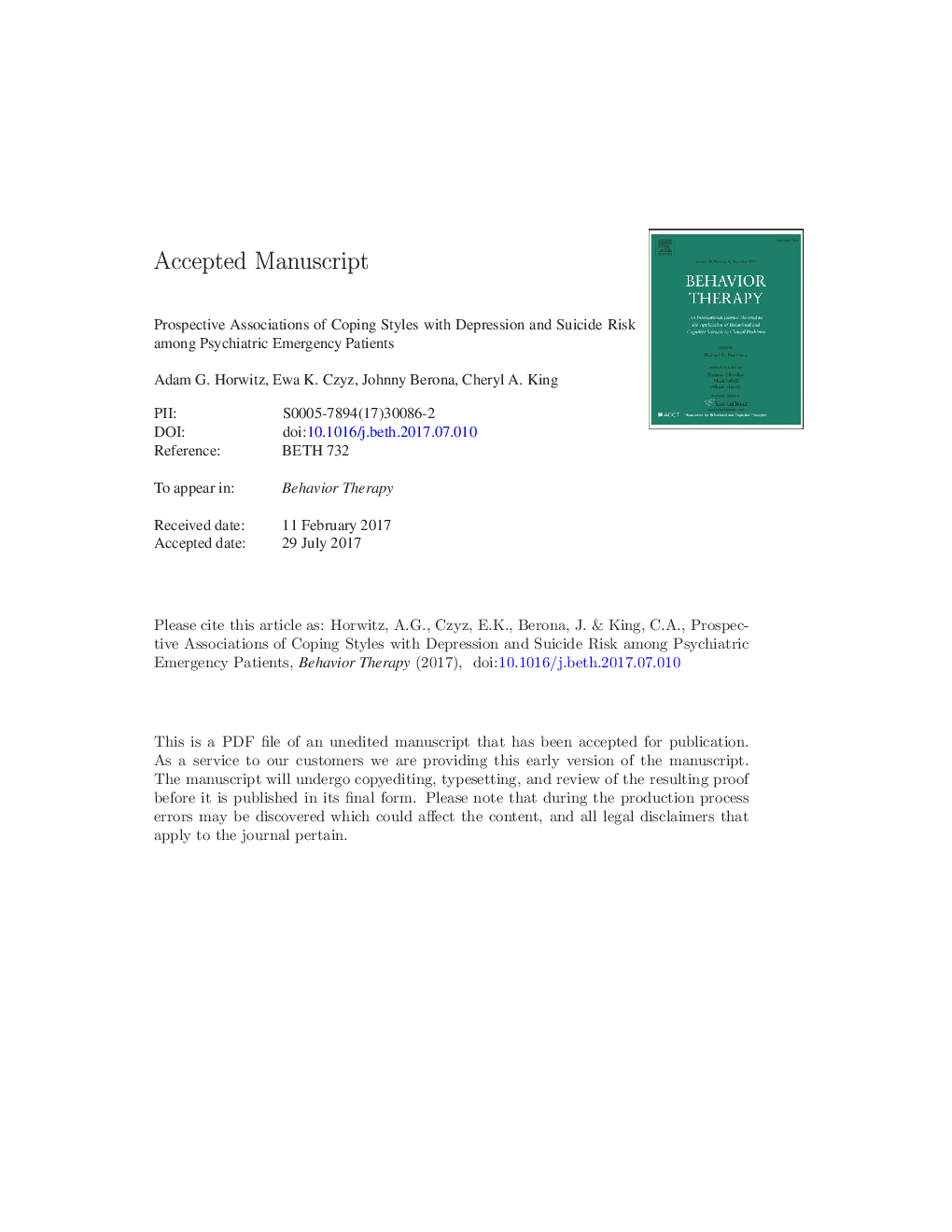ترجمه فارسی عنوان مقاله
انجمن های آینده پژوهشی سبک های مقابله با افسردگی و خطر خودکشی در بیماران اورژانس روانپزشکی
عنوان انگلیسی
Prospective Associations of Coping Styles With Depression and Suicide Risk Among Psychiatric Emergency Patients
| کد مقاله | سال انتشار | تعداد صفحات مقاله انگلیسی |
|---|---|---|
| 123970 | 2018 | 37 صفحه PDF |
منبع

Publisher : Elsevier - Science Direct (الزویر - ساینس دایرکت)
Journal : Behavior Therapy, Volume 49, Issue 2, March 2018, Pages 225-236
ترجمه کلمات کلیدی
مقابله، افسردگی، افکار خودکشی، رفتار خودکشی، طولی
کلمات کلیدی انگلیسی
coping; depression; suicidal ideation; suicidal behavior; longitudinal;
ترجمه چکیده
خودکشی دومین عامل مرگ و میر در سنین 13 تا 25 ساله در ایالات متحده است. مقابله به عنوان یک واسطه بین حوادث زندگی استرس زا و پیامدهای نامطلوب است و مهارت های مقابله ای در مداخلات (مثلا درمان شناختی-رفتاری، درمان رفتاری دیالکتیکی، مداخلات برنامه ریزی ایمن) برای جمعیت خودکشی گنجانده شده است. با این حال، تحقیقات طولی به طور مستقیم ارتباطات آینده نگر بین سبک های مقابله متعدد و نتایج مربوط به خودکشی در نمونه های پر خطر را مورد بررسی قرار نداده است. در این مطالعه، 286 بیمار مبتلا به اضطراب روانپزشکی نوجوان و نوجوانی به روش مقطعی و 4 ماهه سبکهای مقابله با عوامل خطر ابتلا به خودکشی (یعنی افسردگی، افکار خودکشی، رفتار خودکشی) مشخص شدند. اصلاح مثبت سبک مشاجره بود که به طور پیوسته با نتایج مثبت همراه بود، در حالی که خودمختلف و انحلال به طور پیوسته با نتایج منفی همراه بود. مقابله فعال در برابر رفتار خودکشی در مردان، اما نه برای زنان. این اولین مطالعه برای بررسی روابط طولی بین مقابله و نتایج مرتبط با خودکشی در یک نمونه بالینی خطرناک بود. یافته ها نشان می دهد که مداخلات بالینی با نوجوانان و نوجوانان خودکشی ممکن است از تمرکز ویژه ای بر افزایش بازخورد مثبت و کاهش خودکامه بهره مند شوند.

